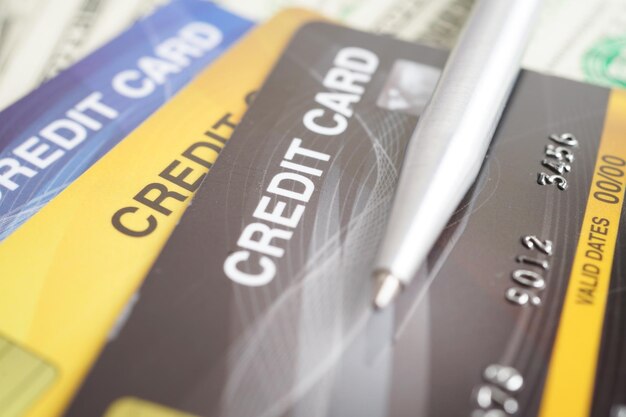The Key to Smart Borrowing: Navigating Bank Credit Checks
In today’s fast-paced financial world, understanding how bank credit checks work is critical for anyone looking to secure a loan, obtain a credit card, or even rent an apartment. Credit checks are more than just numbers; they hold significant importance in shaping your financial future. This guide will demystify the process, highlight why these checks matter, and offer practical insights on how to navigate them successfully.
🔎 What is a Bank Credit Check?
Bank credit checks are evaluations performed by financial institutions to determine the creditworthiness of individuals or businesses. These checks help banks assess the risk involved in lending money. Essentially, a credit check gives lenders a snapshot of your financial reliability, influencing their decision to approve or deny credit applications.
🔑 Key Components of a Credit Check
- Credit Score: A numerical representation of your creditworthiness based on credit history.
- Credit Report: A detailed record of your credit activities and history.
- Debt-to-Income Ratio: A measure of your monthly debt payments compared to income.
- Payment History: Record of your past payments on loans, credit cards, and other accounts.
💡 Why Are Credit Checks Important?
Credit checks play a pivotal role in the financial world, impacting various facets of everyday life. Here’s why they are important:
- Loan Approvals: Banks use credit checks to evaluate your ability to repay borrowed funds.
- Interest Rates: A higher credit score often means lower interest rates, saving you money over time.
- Employment Opportunities: Some employers conduct credit checks as part of the hiring process.
- Rental Applications: Landlords may use credit checks to assess tenant reliability.
Understanding Your Credit Report
A credit report is your financial biography, detailing your credit activities. Here’s a closer look at what it includes:
📊 Elements of a Credit Report
- Personal Information: Basic details like your name, address, and Social Security number.
- Credit Accounts: Information on open and closed credit accounts.
- Credit Inquiries: Any requests made for your credit report.
- Public Records: Details of bankruptcies, liens, and other financial judgments.
🛠️ How to Obtain Your Credit Report
You’re entitled to one free credit report annually from each of the three major credit bureaus. Reviewing your credit report regularly helps ensure accuracy and can alert you to any fraudulent activities.
Building and Maintaining a Good Credit Score
Your credit score is crucial in determining your financial credibility. Here are strategies to build and maintain a strong score:
📈 Tips for a Healthy Credit Score
- Pay Bills on Time: Late payments can significantly impact your score.
- Keep Balances Low: Maintaining low balances on credit cards boosts your score.
- Limit New Accounts: Frequent openings of new accounts can negatively affect your score.
- Diverse Credit Mix: A variety of credit types, such as loans and credit cards, shows responsible credit management.
Navigating the Credit Check Process
Understanding the process can alleviate anxiety and prepare you for any credit-related hurdles.
🚀 Steps in the Credit Check Process
- Pre-Approval: Initial assessment for creditworthiness.
- Application Submission: Providing necessary financial information to the bank.
- Credit Inquiry: Hard inquiry into your credit report.
- Decision Making: Banks evaluate the collected data to make a final decision.
😓 Hard vs. Soft Inquiries
- Hard Inquiries: Occur when a lender checks your credit for lending decisions. These may impact your credit score.
- Soft Inquiries: Performed for non-lending purposes, such as background checks or pre-approved offers, and do not affect your score.
Common Myths About Credit Checks
Despite their ubiquity, credit checks are often misunderstood. Let’s debunk some common myths:
🚫 Myth vs. Reality
- Myth: Checking your own credit score can lower it.
- Reality: Self-checks are considered soft inquiries and do not impact your score.
- Myth: Closing credit cards boosts your score.
- Reality: Closing accounts can increase your credit utilization ratio, potentially lowering your score.
Practical Tips for Managing Credit Wisely
Here’s a summary of actionable insights to stay on top of your credit health:
📝 Top Tips to Manage Credit
- Check Credit Reports Annually: Ensure accuracy and timely dispute errors.
- Automate Payments: Prevent late fees and maintain payment history integrity.
- Prioritize High-Interest Debt: Focus on paying off loans with the highest interest rates first.
- Educate Yourself: Stay informed about changes in credit reporting and scoring standards.
The Broader Impact: Credit Checks and Financial Wellness
Credit checks extend beyond personal finance, reflecting broader implications in financial wellness and economic stability. A robust credit score opens doors to more favorable financial opportunities, contributing to individual and societal prosperity.
🤝 Credit Checks in the Modern Economy
In today’s interconnected economy, credit checks facilitate trust between lenders and borrowers. They serve as an essential tool in maintaining financial discipline and encouraging responsible borrowing. For businesses, strong credit profiles enable expansion and investment, driving economic growth.
Credit checks are not just processes but gateways to achieving financial goals. Understanding their intricacies empowers you to manage your credit wisely, paving the way for a stable and prosperous financial future. Whether you're seeking a loan, considering a mortgage, or planning a significant purchase, being informed about credit checks enhances your ability to make smart, informed decisions.

Related Topics
- A Beginners Guide To Investing In Gold And Other Precious Metals On a Budget
- A Comprehensive Guide To Bridge Loans: How They Can Be Helpful For Lower Income Americans
- A Comprehensive Guide: Growth Stocks Versus Value Stocks
- A Comprehensive Guide: The Impact Of Bankruptcy On Homeownership And Mortgage Options
- A Guide For Lower-Income Americans: Making Your Savings Last A Lifetime
- A Guide: Understanding Different Types Of Bank Accounts
- A Guided Journey: Applying For a Mortgage Through Your Bank
- A Helping Hand: Government Assistance Programs For First-Time Home Buyers
- A Practical Guide: Understanding And Reducing Your Property Tax Assessment
- A Simple Guide To Rent-to-Own Home Contracts For Lower-Income Americans
